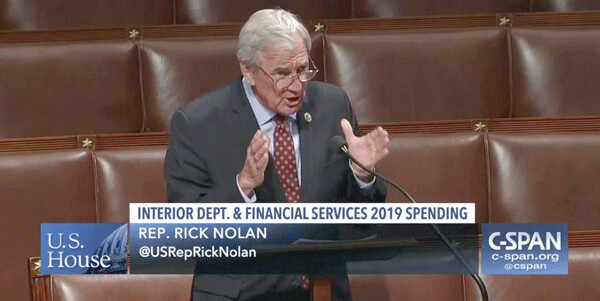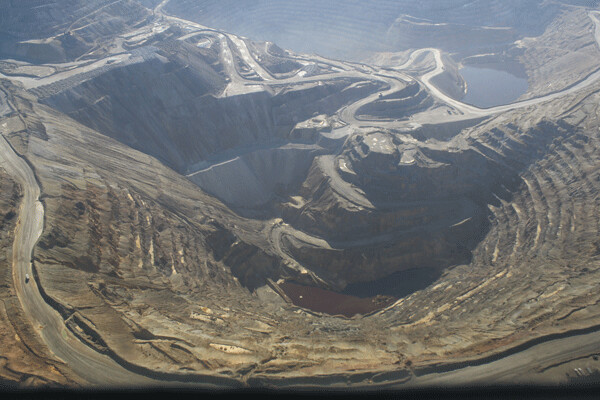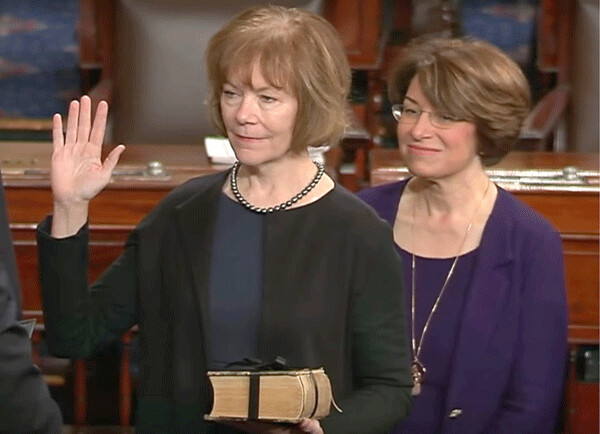The PolyMet Poison Pill
Nolan’s Last Hurrah

Retiring Minnesota 8th District U.S. Representative Rick Nolan is determined to turn over 6,500 acres of public land to foreign mining companies — PolyMet, a penny stock Canadian company underwritten by Glencore, a giant Anglo-Swiss multi-national conglomerate. Nolan’s bill, H.R. 3115 — the Superior National Forest Land Exchange Act — was passed by the U.S. House in 2017. However the bill was unable to make it through the Senate, even though Senators Tina Smith and Amy Klobuchar took up Nolan’s special favors bill. Now Nolan is attempting an end run to get the bill slipped into a Public Lands package as a rider, which could be attached to or hidden within any number of year end must-pass bills.
Water: Our Most Precious Resource
Nolan’s bill would compel the U.S. Forest Service (USFS) to trade away 6,500 acres of Superior National Forest to PolyMet for construction of its proposed toxic open pits near the Boundary Waters. The land coveted by PolyMet would destroy irreplaceable forests, wildlife habitat and corridors, and wetlands and waters considered Aquatic Resources of National Significance (ARNI). In addition, copper-sulfide mining operations would send sulfates and toxic heavy metals down the Partridge River and into the St. Louis River watershed, which ultimately flows into Lake Superior at Duluth.
Toxic heavy metals can accumulate in the body and food chain, creating chronic health conditions, neurological problems, cancer, and lowered IQ. The most commonly found heavy metals include arsenic, cadmium, chromium, copper, lead, nickel, and zinc, all of which cause risks for human health and the environment (Lambert et al., 2000). According to PolyMet’s Environmental Impact Statement (EIS), PolyMet’s tailings basin, plant site, waste rock piles, and pit walls will all leach toxic heavy metals, exacerbated by Acid Mine Drainage.

The weakening of the Week’s Act of 1911
The land to be destroyed by PolyMet was originally acquired by the USFS under the Week’s Act for watershed protection. An open pit strip mine, such as PolyMet is proposing on the Superior National Forest, is not allowed on Week’s Act lands. Instead, the USFS took the easy way out and decided to trade away our National Forests lands to PolyMet rather than protecting the headwaters of Lake Superior – and the entire Great Lakes system.
Four separate legal actions were taken against the USFS by environmental groups challenging the legality of the exchange. But rather than allow for judicial review, our elected officials — Nolan, Smith and Klobuchar — jumped in to override due process and the rights of their own constituents by introducing legislation to compel the USFS to transfer valuable acreage on the headwaters of the Lake Superior and Rainy River watersheds, to a foreign mining company.
Racial injustice, human health at risk
The lands included in the USFS exchange are part of the Ceded Territory of 1854 Treaty, which granted hunting, fishing, and gathering rights to the Tribes. The U.S. government continues to marginalize, ignore, or take away the rights of the original inhabitants of this land.
Pollution from a toxic sulfide mine in the headwaters of Lake Superior would travel downstream to adversely impact Fond du Lac, Cloquet, Carlton, Duluth, and Superior, Wisconsin, in addition to anyone else living along the way. PolyMet’s EIS acknowledges that water pollution from its operations would require treatment for at least 500 years.
In a National Public Radio interview (Wildfires, Hurricanes: How Climate Change Is Affecting Natural Disasters, December 9, 2018), Harvard faculty member Jesse Keenan speaks of the coming population migrations within the next 50 years due to climate change. His interview mentions Duluth, Minnesota as a destination place, due to its fresh water supply. Duluth cannot become a climate change haven if it is the recipient of toxic sulfide mining pollution.
Climate science continues to uncover the value of wetlands for carbon storage (Wetlands play vital role in carbon storage, study finds, February 2, 2017, Kenyon College). The U.S. Department of Agriculture posts information on its website regarding the value of forests for storing carbon and offsetting the impacts of climate change. Yet PolyMet’s first action, if permitted, would be the removal of the trees and wetlands covering its planned open pit. The destruction of nearly 1,000 acres of wetlands at the PolyMet mine site would be the single largest loss of wetlands ever permitted in Minnesota. The impacts of such destruction in a changing climate world were never addressed in PolyMet’s environmental review process.
The Minnesota Department of Natural Resources (DNR) has allowed taconite mining pollution to continue because the industry claims that it is too expensive to clean up. Yet Minnesota politicians turn a blind eye to the fact that sulfide mining — due to its extremely low grade character (less than 1% metal, 99% waste rock), and due to the acid producing potential of sulfide ores —will be much more harmful to our water and environment than taconite mining and exponentially too expensive to clean up. They also ignore the fact that there are no adequate clean-up technologies in existence to date.
Toxic Sulfide mining district in the works
Our politicians are also hiding behind a strategy which claims that Minnesota can permit PolyMet while denying other mining companies. With Teck adjoining PolyMet, and Twin Metals adjoining Teck, there will be one massive sulfide mining district that extends to the border of the Boundary Waters Canoe Area Wilderness if PolyMet goes forward.
The permitting of PolyMet is just the beginning point for sulfide mining. The Lands and Minerals Division of the DNR, backed by the state executive committee, are incapable of halting — or even slowing — mineral exploration, leasing, and promotion.
The DNR is now granting leases to Anglo Gold Ashanti, a South African mining company which is the third largest gold mining company in the world, to drill for gold on state-owned land in northern Minnesota. The company has already drilled on more than a 100 sites in northern Itasca County and plans to drill on 30 more sites this winter. ( https://kstp.com/news/drilling-for-gold-mining-companys-increased-exploration-worries-cabin-owners/5149989/) Minnesota allows for the use of cyanide leaching for gold extraction. Minnesota is caught in a mining controlled net--hook, line, and sinker.

Future legacy
Rep. Nolan is willing to place his political legacy on the line by acting as a mining company lobbyist rather than acknowledging the conflicting interests of his constituency and the impacts to the health of future generations of children. By joining Nolan’s movement, our two women senators, who ran on a platform of environmental stewardship and equality for women and racial minorities, are demonstrating that the power of foreign mining interests take precedent over protecting the human health rights of our families and children, and those of the Tribal nations.
If Nolan’s H.R. 3115 poison pill rider for PolyMet is slipped into a must-pass piece of legislation, it would be a direct giveaway to a foreign mining company. It would deny American citizens their rights to due process under the law, and would be a health, safety, environmental and financial liability for future generations. Our politicians are placing our futures at risk by pushing PolyMet’s risky and destructive mine. Three-fourths of Minnesotans surveyed oppose PolyMet’s proposed toxic sulfide mine that would be located on the headwaters of Lake Superior (Minnesota Environmental Partnership, February 2017).
PolyMet’s toxic sulfide mine threatens Lake Superior and the Boundary Waters
The must-pass end of year bills are expected to be completed and signed before the holiday break. Call the elected officials below now, for the sake of tomorrow’s children.
Call Democratic party leaders Sen. Schumer and Rep. Pelosi and tell them to keep the “poison pill” rider for a toxic PolyMet mine out of the Public Lands package or any other bill. Let them know that the reckless endangerment of northern Minnesota by our politicians and foreign mining corporations is simply unacceptable!
Sen. Chuck Schumer, Senate Minority Leader, 202-224-6542
Rep. Nancy Pelosi, House Minority Leader, 202-225-4965
Give Rep. Nolan and our Minnesota senators a call and let them know you don’t appreciate backroom deals that benefit foreign mining companies over clean water, public health and public lands protection.
Rep. Rick Nolan, (202) 225-6211
Sen. Tina Smith, (202) 224-5641
Sen. Amy Klobuchar, (202) 224-3244
Visit www.sosbluewaters.org for more information.
